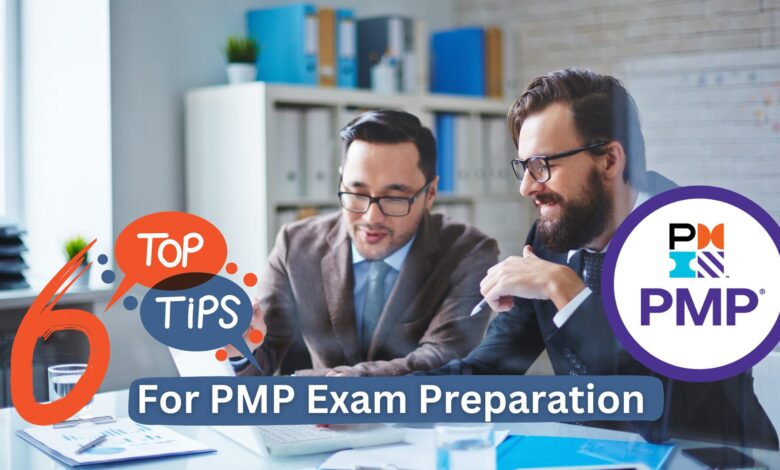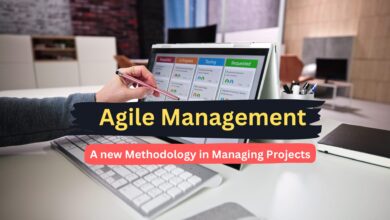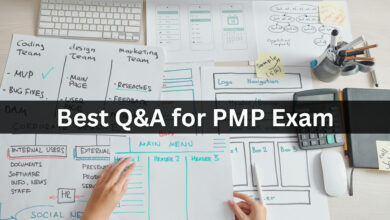Top 6 Tips for PMP Exam Preparation: How to Succeed with Effective Study Strategies

Studying for the PMP (Project Management Professional) exam takes more than just effort and time—it requires strategy and commitment. The PMP exam is challenging, demanding months of thorough preparation. Whether you’re a seasoned professional or just starting in project management, your PMP exam preparation must be systematic and effective. Here are the top 6 Tips for PMP Exam Preparation: How to Succeed with Effective Study Strategies.
Why PMP Exam Preparation Is Important?
With an increasing number of professionals earning PMP certification worldwide (currently over 762,000), competition is growing. Don’t worry, though—with dedication and the right guidance, you can excel in the PMP exam. Here, we outline some top PMP exam preparation tips to set you on the right path.
Important Mcqs in Project Management with Answers
6 Key PMP Exam Preparation Tips
- Survey the Study Material: Begin your preparation by surveying all the study materials. Go through the charts, graphs, and headings in the PMBOK® Guide (Project Management Body of Knowledge) as well as in your prep book. This familiarizes you with the topics and helps you develop a mental roadmap for easier information retrieval, both during initial studies and subsequent reviews.
- Find Your Motivation: Having clear motivation is crucial. Determine your learning goals before each study session. This keeps you focused and helps you understand what you want to accomplish by the end of each day. A PMP prep book often has study goals or recap questions—use these to guide your study.
- Conduct Research-Based Learning Approach: studying with a mindset of research rather than passive reading. Write down questions that you want answered while reviewing each chapter. This proactive strategy makes your learning more engaging and effective, especially when navigating complex material in the PMBOK® Guide.
- Break Up Study Sessions: Cognitive research shows that we remember the start and end of study sessions best. Capitalize on this by breaking down your study time into smaller segments. For example, instead of studying for three straight hours, split it into six 30-minute sessions with breaks in between. This approach can help improve retention and reduce study fatigue.
- Master the PMBOK® Guide: The PMBOK® Guide is at the core of the PMP exam. It’s essential to understand each knowledge area thoroughly. Dedicate a week to each knowledge area and a day to each process within it. The PMP exam will test how well you understand and can apply these concepts, so focus not just on memorization but also on practical application. Reviewing each section multiple times will make the material more understandable and easier to absorb.
- Stay Updated with Changes: Project management evolves continuously, and the PMBOK® Guide gets updated accordingly. Be sure to use the latest version available (currently the 5th edition) and review appendix X1, which outlines recent changes. Staying current will help you understand how project management practices evolve and ensure you’re up to date on essential concepts.
Top 6 Strategies to Ace the PMP Exam
- Utilize a High-Quality PMP Prep Book
A good PMP prep book is a must. Consider books by renowned authors like Rita Mulcahy or Andy Crowe. These resources break down complex concepts into easy-to-understand language and help you tackle tricky topics like inputs, tools, techniques, and outputs (ITTOs). Aim to understand the process basics before diving into detailed ITTOs to build strong conceptual clarity. - Attend PMP Exam Prep Workshops
Prep workshops are great for hands-on learners who prefer classroom interaction. These sessions also fulfill the 35-contact-hour prerequisite needed to apply for the exam. They offer a structured environment that can help you stay on track and connect with other PMP aspirants. - Explore Online PMP Prep Courses
If a classroom setting isn’t ideal, consider an online prep course. These are often more flexible and affordable. Research different courses, compare pricing, and read testimonials to choose one that fits your schedule and learning style. - Use PMP Exam Simulators
PMP exam simulators mimic the real test environment, allowing you to practice under timed conditions. These simulators help you become familiar with the exam’s structure and pressure, allowing you to identify areas needing improvement before the actual exam day. - Leverage Flashcards for Quick Learning
Flashcards are an excellent way to recall key PMP concepts. They can be digital or printed, and creating your own flashcards during study sessions will further reinforce your understanding. Flashcards are easy to carry, so you can study anywhere, even on the go. - Participate in Study Groups and Discussion Forums
Joining a PMP study group or online forum offers several benefits. Discussing topics, sharing insights, and answering others’ questions will deepen your understanding. Study groups can also serve as a source of motivation, pushing you to stay committed to your study schedule.
Check these MCQs for the PMP exam
Types of PMP Exam Questions: What to Expect
The PMP exam includes 200 multiple-choice questions, divided into various types:
- Situational Questions: These questions describe scenarios where you need to identify key details while ignoring irrelevant information. Practice reading carefully to pick out the relevant aspects.
- Formula-Based Questions: Project management involves calculations related to earned value, depreciation, and probabilities. Be comfortable with formulas to answer these questions accurately.
- Knowledge-Based Questions: These questions test your grasp of PMP concepts found in the PMBOK® Guide, including knowledge areas, processes, charts, and frameworks like the RACI chart.
How to Know If You’re Ready for the PMP Exam
PMI does not specify a pass percentage for the PMP exam, but most people believe a score of 62% is necessary to pass. For greater certainty, apply the “85% rule” to your practice tests. Once you’re able to answer 85% of the practice questions correctly, you can feel confident about your readiness for the exam.
Final Tips for PMP Success
Achieving PMP certification isn’t easy, but with focus, consistent effort, and motivation, success is within reach. Always keep your study materials handy and make use of every available moment to revise concepts. Join a study group for additional motivation, and spend extra time on challenging areas to master them.
After passing the PMP exam, prepare for job interviews with the same dedication. Recruiters may ask questions that challenge your understanding of project management concepts, so be ready with examples and experiences from your studies.




